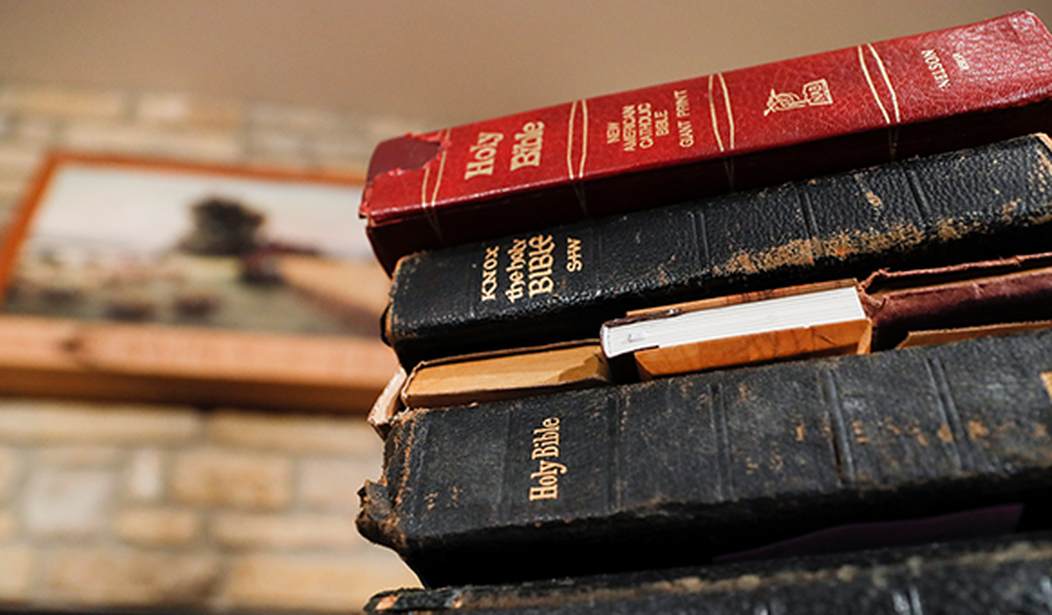Author's Note: All previous volumes of this series are here. The first 56 volumes are compiled into the book "Bible Study For Those Who Don't Read The Bible." "Part Two," featuring volumes 57-113, was published in December 2022.
News Flash: $1 Million Challenge to Replicate the Shroud of Turin – Contest Details.
Thanks for joining our study. Several weeks ago, some research referred me to Malachi – the final book of the Hebrew Bible/Old Testament. Then, I “heard” a calling directing me to write a study, and here we are!
This is the first time I have written about an ancient Hebrew prophet whose large tomb/cave I have explored. Malachi also had “tomb mates”—the prophets Haggai and Zechariah, who wrote the third and second-to-last Hebrew Bible books. They lived in the sixth century BC, while Malachi came later, in the fifth century BC.
Their tomb/cave is located on the Mount of Olives in Jerusalem. Given the tomb’s proximity to the Pater Noster Church—built on the traditional site where Jesus taught his disciples “The Lord’s Prayer” — Jesus had to have passed by the tomb/caves or perhaps even entered during his earthly ministry.
The prophet Malachi’s name means “my messenger” and is also called an “oracle,” according to the introductory first verse of the first chapter:
“The oracle of the word of the Lord to Israel by Malachi” (Malachi 1:1).
As an oracle of God’s word, Malachi’s short four-chapter book — divinely and strategically placed — chronicles the circumstances necessitating the long-awaited Messiah about which well-known Pastor Chuck Swindoll said:
“Malachi teaches us that they [Israelites] still strayed from the Lord’s path. They needed God’s intervention as much as ever, so this book, as a final statement of judgment in the Old Testament, anticipates God’s saving work through the Messiah, Jesus Christ.”
Recommended
Know that approximately four hundred years passed between Malachi and the events recorded in Matthew — the New Testament’s opening book.
Given space considerations, my Malachi focus is narrowed to consequential prophetic passages connected to milestone moments in John the Baptist and Jesus's ministries.
First, the context and background of Malachi’s writing must be noted. The Israelites are doubting God’s love for them. They are losing hope in the covenant established between God and Abraham, as reflected in Malachi’s second verse:
“ ‘I have loved you,’ says the Lord. ‘But you ask, “How have you loved us?” (Malachi 1:2). Then Malachi channels the Lord’s answer in 1:2-2:16. (Extra credit if you read it.) Then the Lord states:
“ ‘You have wearied the Lord with your words. “How have we wearied him?” you ask. ‘By saying, “All who do evil are good in the eyes of the Lord, and he is pleased with them” or “Where is the God of justice?” (Malachi 2:17). To which the Lord answers:
“ ‘I will send my messenger, who will prepare the way before me. Then suddenly the Lord you are seeking will come to his temple; the messenger of the covenant, whom you desire, will come,’ says the Lord Almighty ’ ” (Malachi 3:1).
God saying, “prepare the way before me” in the Hebrew Bible’s final book is like a movie setting up the last scene for a sequel. Moreover, that verse famously mirrors the prophet Isaiah, who wrote, “Prepare the way for the Lord,” approximately 400 years before Malachi.
In the New Testament, John the Baptist is “the way” who is being “prepared,” as recorded in Matthew 3:3, Mark 1:2, and Luke 3:4. Thus, early Christianity was called “The Way,” stemming from Isaiah 40:3.
Malachi concludes with a prophecy; the last Hebrew Bible sentences read:
“See, I will send the prophet Elijah to you before that great and dreadful day of the Lord comes. He will turn the hearts of the parents to their children, and the hearts of the children to their parents; or else I will come and strike the land with total destruction” (Malachi 4:5-6).
Elijah would “appear” as John the Baptist to herald the coming of the Lord Jesus, as we will read next in Matthew 11. There, Malachi’s prophesy is realized when Jesus speaks about John the Baptist:
“As John’s disciples were leaving, Jesus began to speak to the crowd about John:
‘What did you go out into the wilderness to see? A reed swayed by the wind?
If not, what did you go out to see? A man dressed in fine clothes?’
‘ No, those who wear fine clothes are in kings’ palaces. Then what did you go out to see? A prophet? Yes, I tell you, and more than a prophet. This is the one about whom it is written:
“ ‘I will send my messenger ahead of you, who will prepare your way before you.’ ”
‘Truly I tell you, among those born of women, there has not risen anyone greater than John the Baptist, yet whoever is least in the kingdom of heaven is greater than he. From the days of John the Baptist until now, the kingdom of heaven has been subjected to violence, and violent people have been raiding it. For all the Prophets and the Law prophesied until John. And if you are willing to accept it, he is the Elijah who was to come. Whoever has ears, let them hear’ ” (Matthew 11: 7-15).
That passage also connects to the gospel of Luke. When the angel of the Lord foretold Zechariah about the birth of his son, John the Baptist. The angel said:
“ ‘And he will go on before the Lord, in the spirit and power of Elijah, to turn the hearts of the parents to their children and the disobedient to the wisdom of the righteous—to make ready a people prepared for the Lord ’ ” (Luke 1-17).
So, what should we learn from “Malachi the Messenger?”
First, the connection between the Old Testament prophecies and the Gospels about the coming of John the Baptist to make way for the Messiah cannot be ignored, downplayed, or written off as “coincidental,” given its final placement.
Second, providing clarity is another insightful quote from Pastor Chuck Swindoll:
“God’s final word of the Old Testament concerns judgment for sin and testifies to our inability to love Him without the help of His grace.”
Third and most profound is through Malachi, God positions the second verse as a divine statement and question: “ ‘I have loved you,’ says the Lord. ‘But you ask, “How have you loved us?” The New Testament provides the answer, and His name is Jesus:
“For God so loved the world that he gave his one and only Son, that whoever believes in him shall not perish but have eternal life” (John 3:16). Amen!
Myra Kahn Adams is a conservative political and religious writer with numerous national credits. Her book, "Bible Study For Those Who Don't Read The Bible," reprints the first 56 volumes of this popular study. "Part 2,” with the same title, reprints Vols. 57-113 Order it here.
Myra Kahn Adams is a conservative political and religious writer with numerous national credits. She is also the Executive Director of SignFromGod.org and the National Shroud of Turin Exhibit. Both are educational donor-supported ministries dedicated to building a permanent Shroud of Turin exhibit in Washington, D.C., and promoting the $1 Million Challenge to replicate the Shroud. Contact: <MyraAdams01@gmail.com>

























Join the conversation as a VIP Member